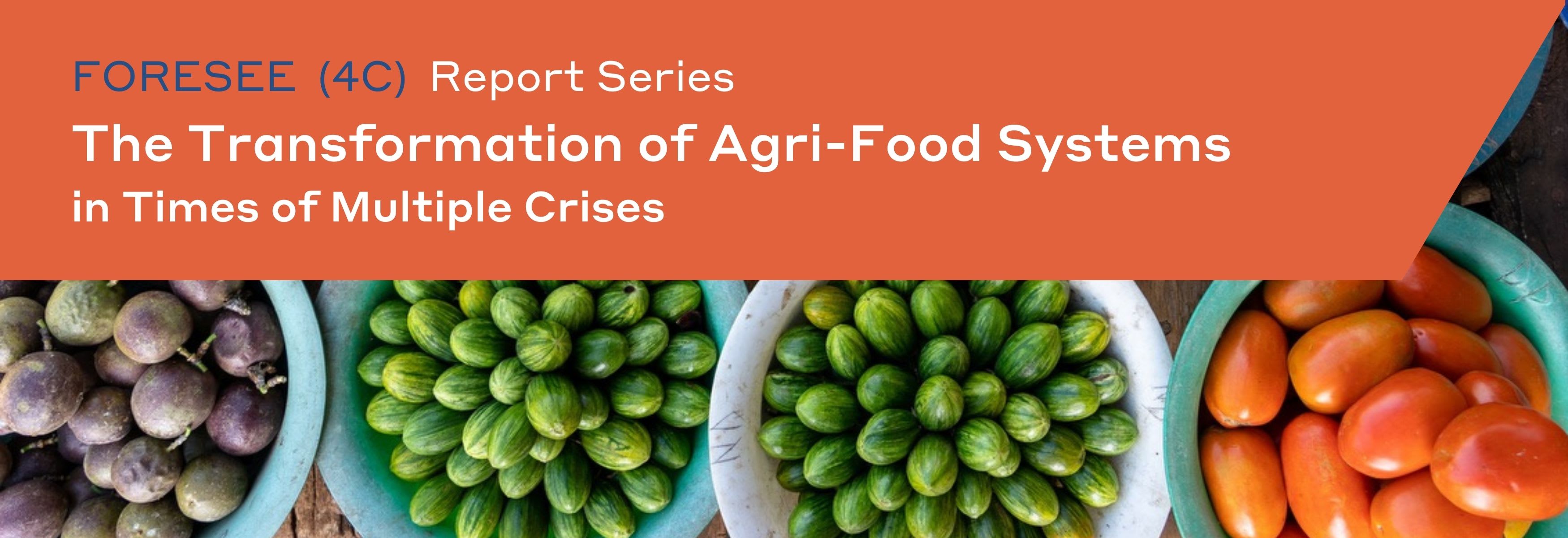
FORESEE (4Cs) Report Series
Towards a joint strategy for agri-food system transformation
There is an urgent need to rethink the way we produce, distribute, and consume food worldwide and to build sustainable, resilient, healthy, and just agri-food systems. The multiple crises of climate change, Covid-19, armed conflicts, and soaring costs linked to social and environmental externalities (the ‘4 Cs’) reinforced existing weaknesses of global food security and have had a disproportionate impact on the functioning of agri-food systems, particularly for the most vulnerable regions and people. These four interlinked crises pose profound additional challenges for the transformation process as they introduce variables that have not previously been considered in discussions of transformation.
The 4 Cs provide an opportunity and an impetus (a ‘perfect storm’) to think about the proposed pathways for a transformation of agri-food systems. The failure of short-term solutions that have been adopted in various countries should serve as a sharp reminder of the need to devise sustainable long-term strategies. These must not only make the agri-food systems more resilient and capable of overcoming breakdowns caused by the multiple crises but also contribute to preventing these crises in the first place. Since the 4 Cs are global crises, their solution requires concerted international effort addressing the lack of an international agreement dedicated to agri-food systems transformation.
The debates on agri-food systems transformations are, necessarily, dominated by question of ensuring food security for all, as well as the environmental, social, and technical aspects of the necessary change. There is, however, not enough emphasis on HOW to manage the just transformation of agri-food systems.
The FORESEE (4C) series on The Transformation of Agri-Food Systems in Times of Multiple Crises, explores the current agri-food system in light of challenges linked to the four crises known as the 4 Cs (Climate, Covid-19, Conflict, and Cost of externalities) and offers recommendations on how to advance transformation efforts.
Report 1, Current Conditions and Policy Frameworks of Agri-Food Systems Transformation, analyses the 4 Cs and how they interact with the dynamics of the current agri-food systems. The report provides a general review of the international policy landscape in which the agri-food system transformation must find its place. Its main focus is on the three Rio Conventions and possible synergies between the fulfilment of the Rio mandate and a transformation of agri-food systems.
Report 2, State of the Debate on Agri-Food Systems Transformation, reviews the state of the debate around agri-food systems transformation from the perspective of different organisations that represent a wide range of actors and stakeholders. The report provides an overview of the different proposed approaches to achieving the goals of agri-food system transformation aligned to the thematic areas of People, Planet, and Prosperity proposed at the United Nations Food Systems Summit in 2021.
Report 3, Blind Spots in the Agri-Food System Transformation Debate and Recommendations on How to Address These, analyses the blind spots in the debate around agri-food systems transformation and describes how these hinder the transformation. Furthermore, this report offers recommendations on how to address these gaps to facilitate an agri-food system transformation aligned to the leading themes of People, Planet, and Prosperity.
Report 4, The Agri-Food Systems Transformation Protocol - Mapping the Agents and Drivers of Transformation explores key actors and catalysts for agrifood systems transformation. It advocates for a multi-level governance approach, incorporating global agreements (primarily the three Rio Conventions - CBD, UNCCD, UNFCCC), national pathways, and implementation. The report further introduces a decision support tool to develop transformation pathways in different contexts and at different levels.
Report 5, ‘Changing the Equation: Leveraging True Cost Accounting to Accelerate Agri-food Systems Transformation’, promotes True Cost Accounting (TCA) as an approach to uncovering hidden environmental, social and health costs in agri-food systems. By addressing these externalities, TCA fosters sustainable policy, investment and business decisions. The report offers concrete entry points for TCA and highlights its potential to drive sustainable economic reform.

Report
FORESEE (4C) Report 5: Changing the Equation: Leveraging True Cost Accounting to Accelerate Agri-food Systems Transformation
This report promotes True Cost Accounting to reveal hidden environmental, social, and health costs in agri-food systems.
Written by Lisa Klaus, Olivia Riemer, Alexander Müller
Published on Oct 31, 2024
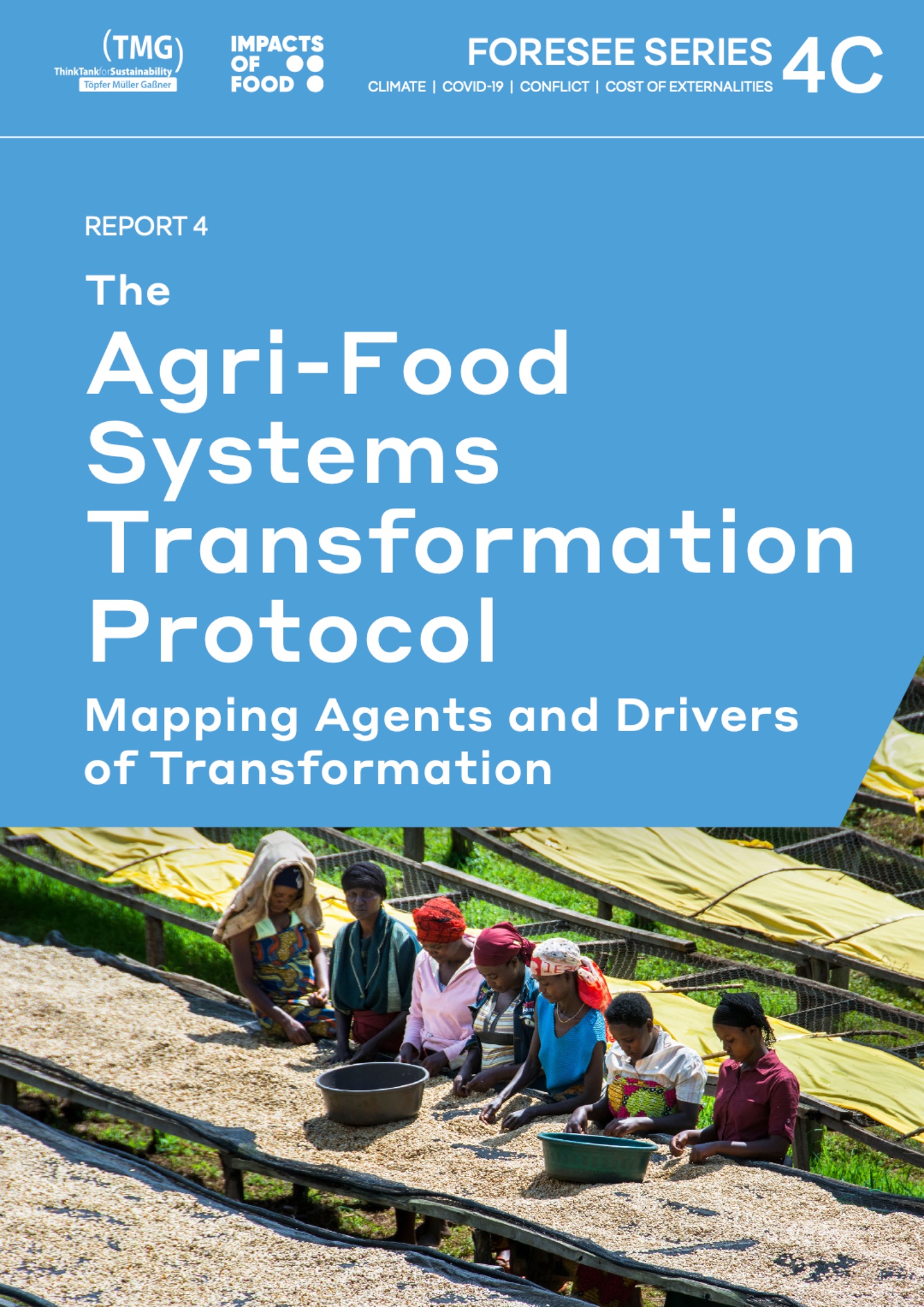
Report
FORESEE (4C) Report 4: The Agri-Food Systems Transformation Protocol - Mapping Agents and Drivers of Transformation
Exploring key actors and catalysts for agri-food systems transformation.
Written by Tavseef Mairaj Shah, Olivia Riemer, Nadia El-Hage Scialabba, Alexander Müller
Published on Dec 04, 2023
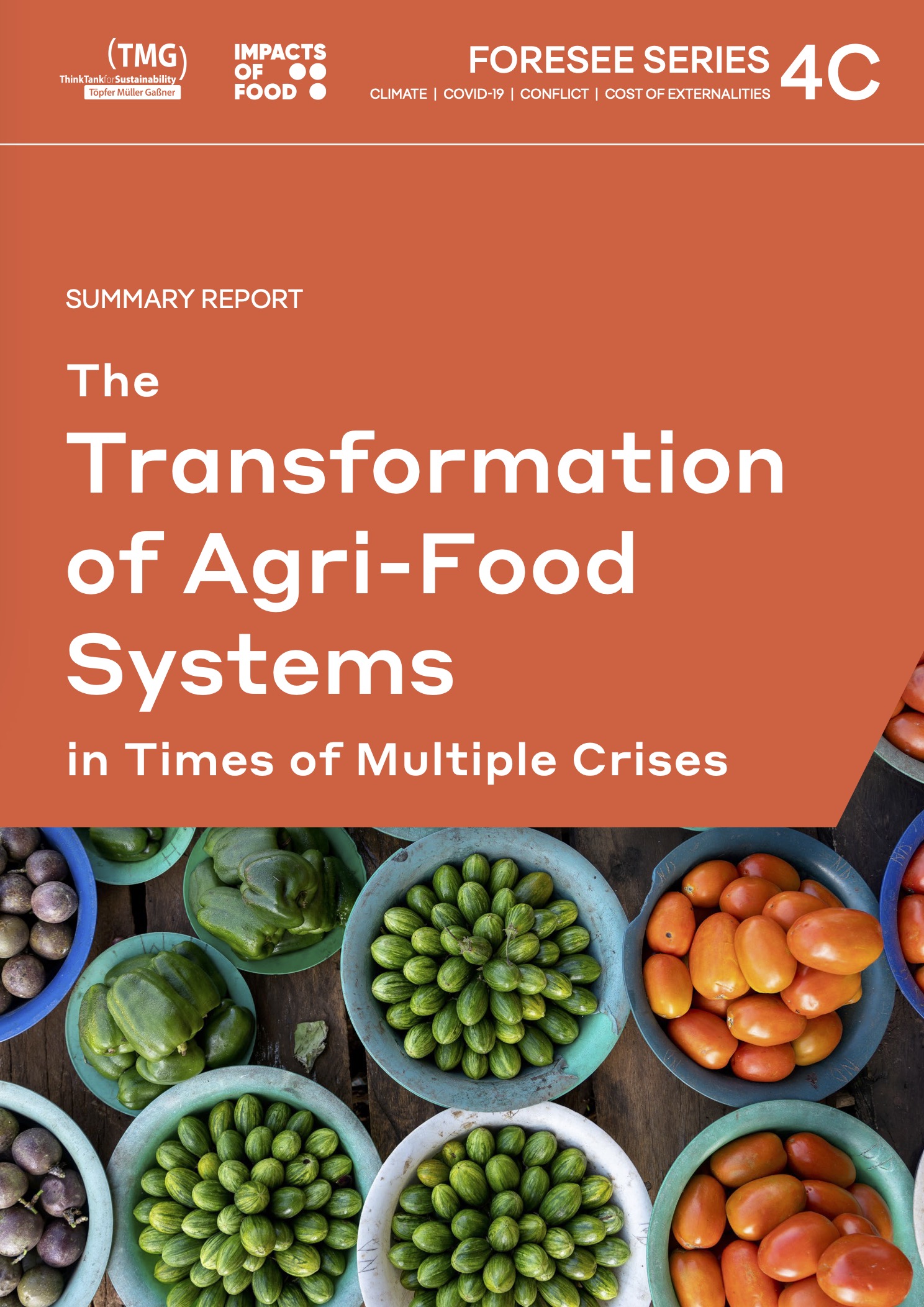
Report
FORESEE (4C) Summary Report: The Transformation of Agri-Food Systems in Times of Multiple Crises
Exploring equitable, healthy, resilient and sustainable pathways for agri-food transformation. This is a summary of the FORESEE (4C) series: Reports 1, 2, and 3.
Written by Tavseef Mairaj Shah, Olivia Riemer
Published on Apr 03, 2023
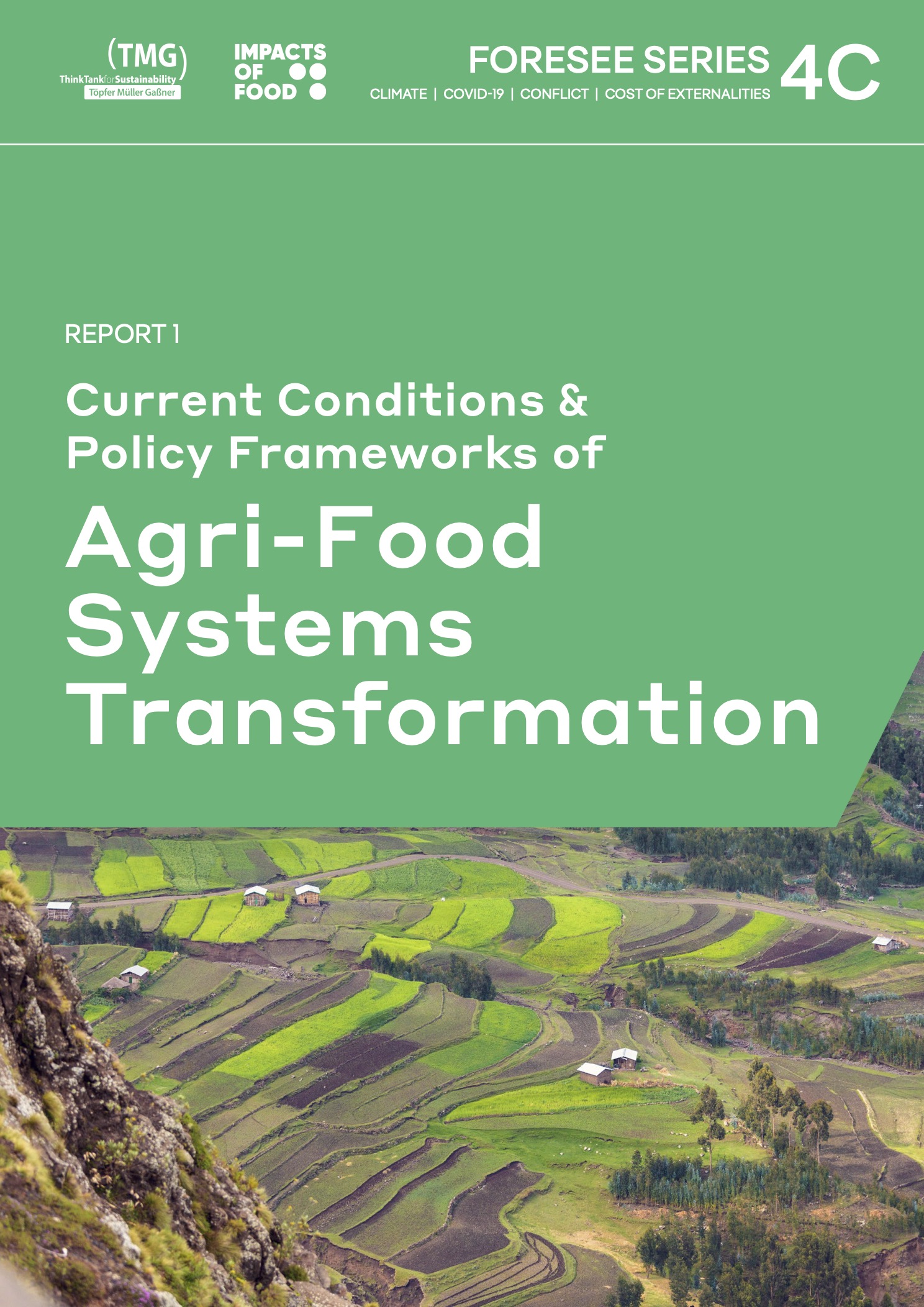
Report
FORESEE (4C) Report 1: Current Conditions and Policy Frameworks of Agri-Food Systems Transformation
Analysing the 4Cs and their interaction with agri-food systems
Written by Olivia Riemer, Tavseef Mairaj Shah, Sarah Zitterbarth
Published on Apr 03, 2023
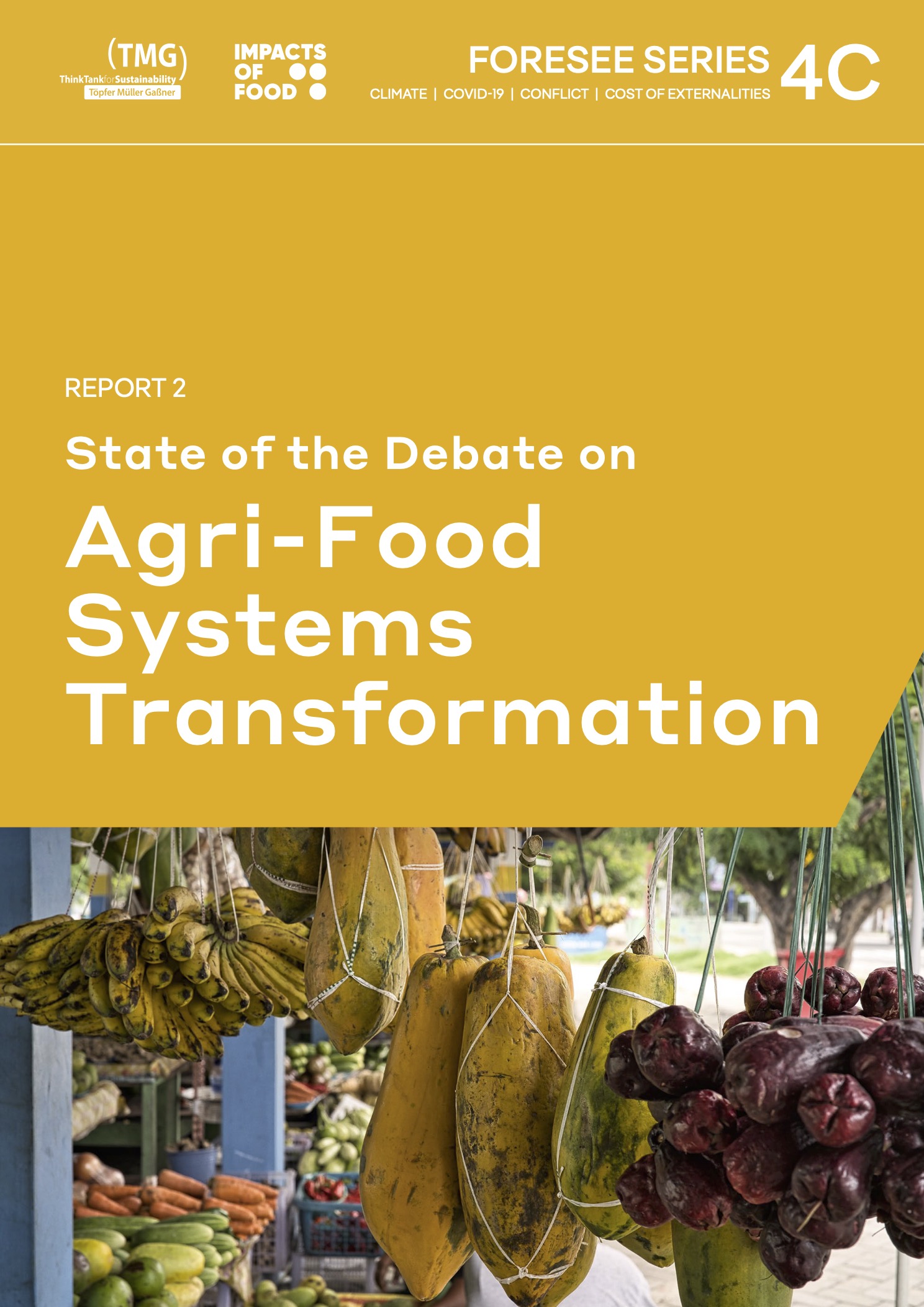
Report
FORESEE (4C) Report 2: State of the Debate on Agri-Food Systems Transformation
A multi-actor review of current debates around agri-food systems transformation.
Written by Nadia El-Hage Scialabba, Sarah Zitterbarth, Tavseef Shah
Published on Apr 03, 2023
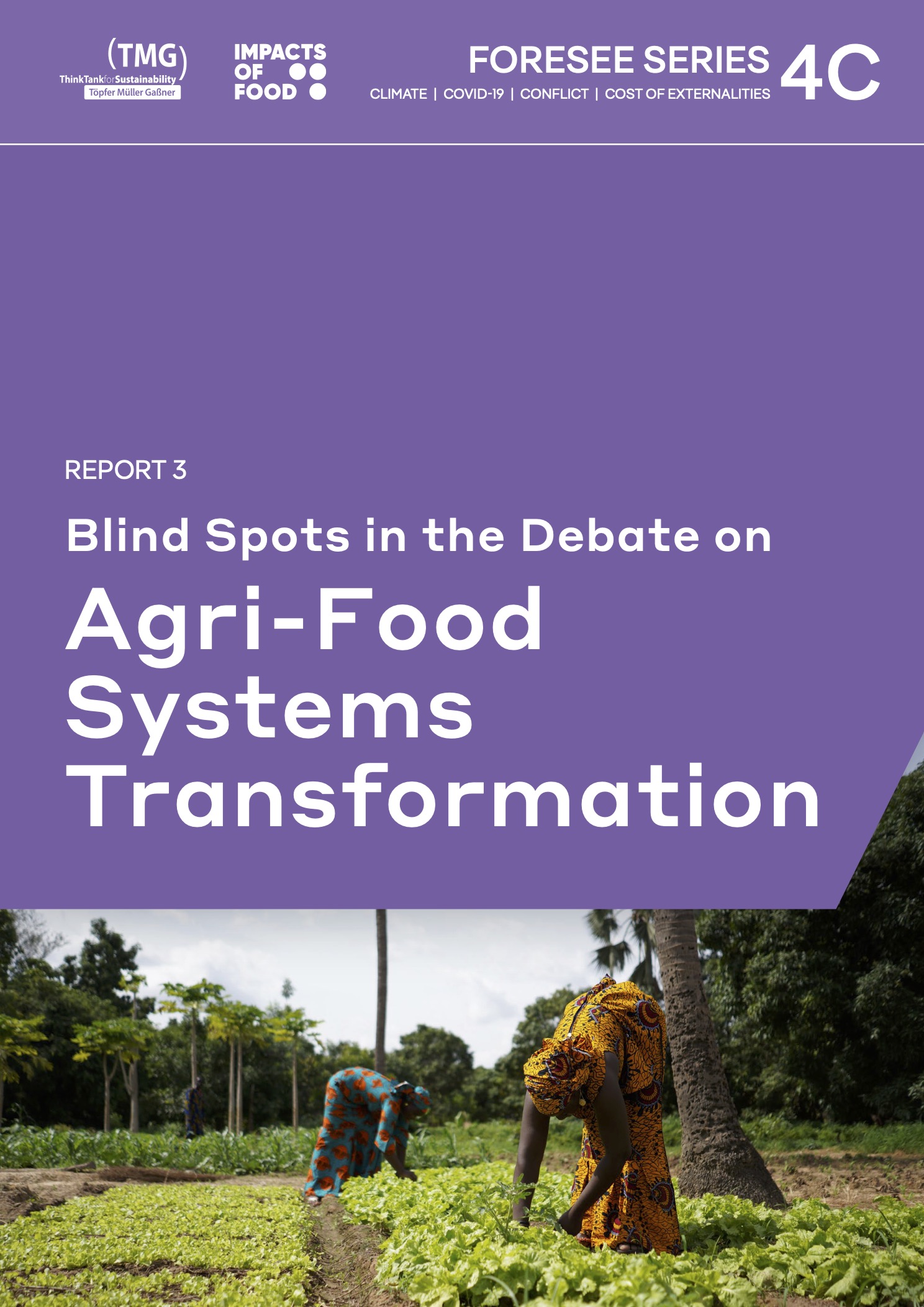
Report
FORESEE (4C) Report 3: Blindspots in the Debate on Agri-Food System Transformation
Analysing blind spots in the debate around agri-food systems transformation and how to address them.
Written by Patrick Caron, Maureen Gitagia, Michael Hamm, Ulrich Hoffman, Elizabeth Kimani-Murage, Tania Martinez-Cruz, Kathleen Merrigan, Pat Mooney, Olivia Riemer, Nadia El Hage Scialabba, Tavseef Mairaj Shah
Published on Apr 03, 2023




